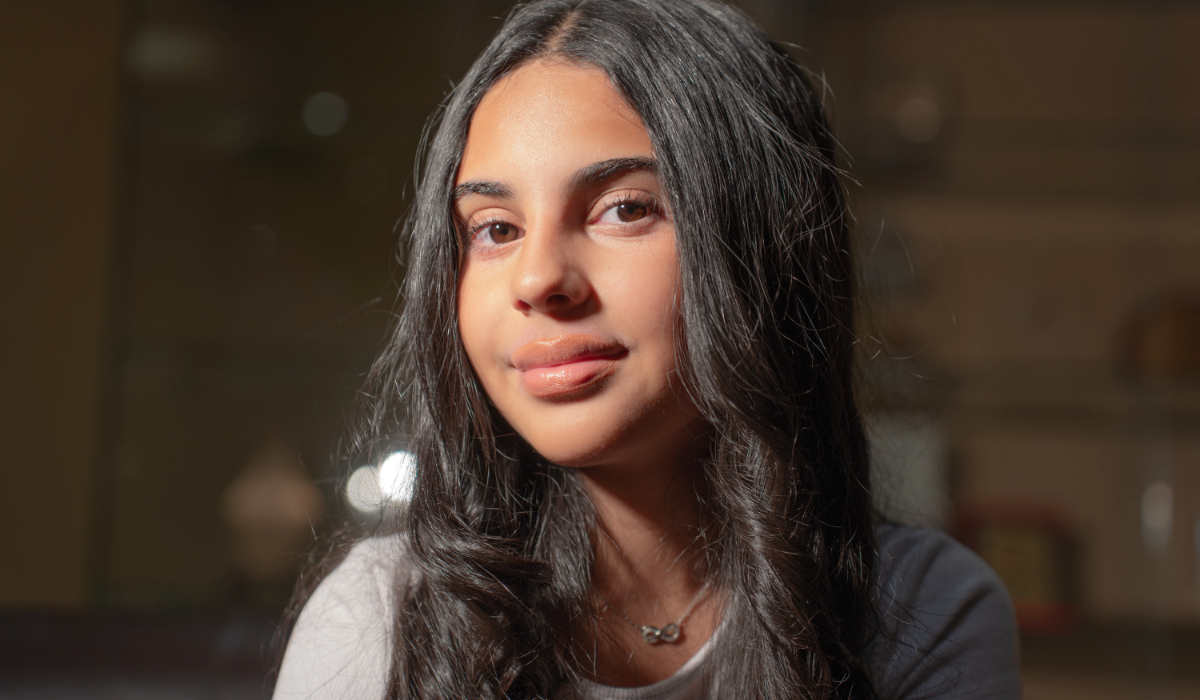RIYADH: Saudi content creator and podcaster Rateel Alshehri hopes to empower youth to bring about the changes they want to see through her series, Rateel Alpha Talk.
Alshehri, who is only 13 years old, has connected with thousands of people through her storytelling on Youtube, Tiktok and Instagram, with videos providing relatable content and glimpses of her daily life.
“Having my own talk show was something I’d always dreamed of, but having a voice and a platform is a responsibility and a duty that I take seriously,” she said. “It’s incredibly exciting to be able to bring a fresh perspective to conversations and engage with such a diverse audience. I feel a responsibility to use this platform to empower young people and spark meaningful discussions.”

Rateel Alpha Talk on YouTube has a variety of videos where Rateel Alshehri brings the younger generation’s perspectives into topics such as marketing, meditation, and artificial intelligence. (Instagram/rateel.alshehri/Supplied)
Rateel Alpha Talk is more than a podcast, it’s a movement, Alshehri said.
“It’s about adopting a mindset of stepping outside your comfort zone, aiming high, and living each day with the intention of leaving a positive mark. It is a space for exploration, challenging assumptions, and igniting the curiosity within all of us.
“There are no silly questions, only missed opportunities to learn and the future belongs to those who dare to ask ‘why?’ I believe curiosity and initiative are the keys to make a real difference in the world.”
Her goal is to create content that not only entertains but also challenges and inspires her audience to think critically and act boldly.
Having my own talk show was something I’d always dreamed of, but having a voice and a platform is a responsibility and a duty that I take seriously.
Rateel Alshehri, Saudi content creator
“Through sharing our stories, fears, thoughts and, most importantly, our questions, we can truly change lives.”
The name Rateel Alpha Talk reflects her identity and the show’s focus on Generation Alpha and their experiences.
“Rateel Alpha Talk embodies my journey of continuous exploration, creativity, and initiative. It represents my commitment to sparking curiosity and inspiring others to take bold steps in their own lives.”
At a young age, Alshehri had a natural love for creating. In school, she would come up with story ideas for the entire class and whip up interesting games when they were bored.
“Talking, sharing, and listening to stories are my passions. I prefer making eye contact and having real conversations, earning me the nickname ‘Social Butterfly’ from my family,” she said.
Alshehri says she gets her inspiration from everyday life, but one of the most important people is her mother.
“She’s always been my biggest cheerleader. She has this incredible ability to see potential in even the craziest ideas, and she constantly reminds me: ‘How do you want to be remembered? So work on that.’”
Alshehri says she sees a future in making an impact and helping young people develop the skills they need to thrive,
“There are a lot of challenges out there, but if we equip our generation with the right tools, we can build a future where everyone can chase their dreams and live fulfilling lives.”
Her advice to anyone looking to create their own talk show is to slow down and be authentic.
“The best people in media aren’t copycats, they’re independent thinkers who use their own ideas to challenge how things are usually done. They ask questions, see things from different angles, and aren’t afraid to be different. These are the people who leave a lasting mark.
“Many people rush to social media to gain followers and build a business. But slow down. Just because something seems great doesn’t mean it is. Fame and greatness come with responsibility.”


























